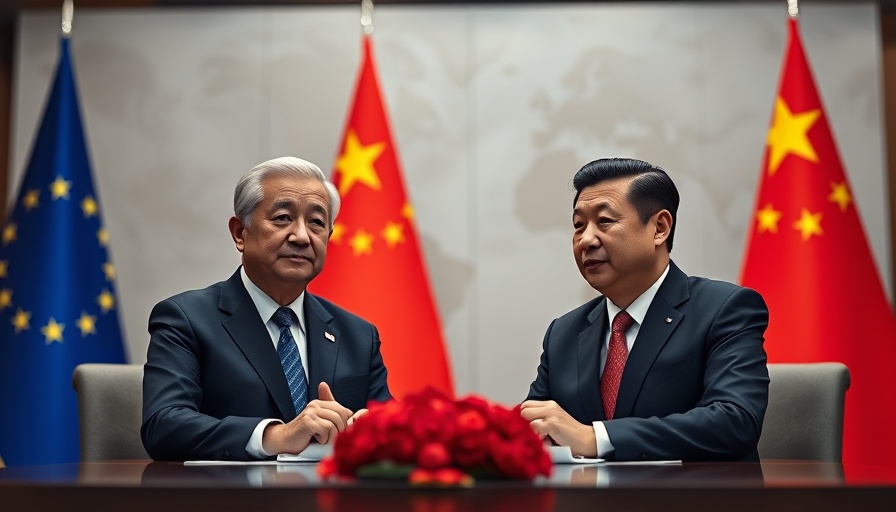
Xi Jinping’s Snub: A Sign of Wider Tensions?
On December 7, 2023, Chinese President Xi Jinping notably absent from a significant EU-China summit, raises eyebrows and questions about the trajectory of relations between China and Europe. This summit was crucial as it aimed to address strategic and global economic issues; however, Xi’s no-show suggests a deeper rift that cannot be easily bridged.
Understanding the Context: EU-China Relations in Flux
Over the years, the relationship between the EU and China has been described as complex. The EU considers China both a partner and a systemic rival. Recent conflicts, especially regarding trade, human rights, and geopolitical strategies, have made this relationship fraught with tension. The EU’s recent moves to reduce dependence on China, paired with Xi’s reluctance to engage, further complicates diplomatic outreach efforts.
What Prompted Xi’s Absence?
Xi's absence could stem from multiple issues. The EU and China have been struggling to find common ground over vital issues such as the situation in Ukraine, where Europe has pushed for a stronger stance against Russian aggression. Xi’s previous meetings with Western leaders, particularly regarding sanctions against Russia, have characterized the relationship as one fraught with misunderstandings and competing interests.
The EU’s Reaction: Implications for Future Dialogue
The EU’s leadership, including President Ursula von der Leyen, expressed disappointment over Xi's non-participation, prompting discussions on how this impacts future engagements. EU officials were prepared to address crucial topics, including China’s economic policies, market access, and adherence to international norms—a dialogue Xi's absence effectively stalled. It raises serious concerns about the sustainability of constructive dialogue moving forward.
Comparative Perspectives: Past Summits vs. Now
Past summits have provided mixed results, often described as a 'dialogue of the deaf', especially when the gap between EU objectives and China’s policies widens. Josep Borrell, the EU’s top diplomat, criticized previous meetings for failing to yield results. This failure to communicate effectively highlights the need for a reassessment of engagement strategies that are now more essential than ever in navigating increasingly conflicting interests.
Prospects Ahead: Can Dialogue be Reinvigorated?
Despite the current low point, the future of EU-China relations is uncertain. Cooperation in key areas like climate change and trade regulation holds potential. China recently lifted some visa restrictions for EU citizens, indicating a willingness to engage, albeit selectively. As discussions around sustainability and digital transformation in business emerge, both parties may yet find common ground.
Financial and Economic Ramifications for the Bay Area
The implications of deteriorating EU-China relations extend beyond Europe and Asia. For businesses in the Bay Area and Silicon Valley, understanding these dynamics is crucial. Trade disruptions can affect not only tech supply chains but also venture capital investments that often look to China as both a market and a partner in innovation.
Conclusion: The Call for Constructive Engagement
For stakeholders in the Bay Area, the evolving landscape of international relations calls for vigilance. As businesses navigate the complexities of potential trade barriers or changes in regulatory landscapes, fostering resilience and strategic adaption remains critical. Staying informed about these geopolitical shifts prepares businesses to strategically position themselves in an unpredictable marketplace.
 Add Row
Add Row  Add
Add 



Write A Comment